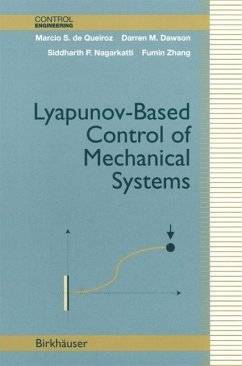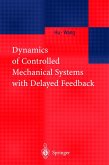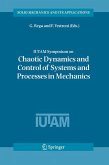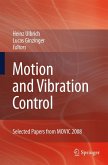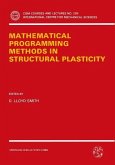The design of nonlinear controllers for mechanical systems has been an ex tremely active area of research in the last two decades. From a theoretical point of view, this attention can be attributed to their interesting dynamic behavior, which makes them suitable benchmarks for nonlinear control the oreticians. On the other hand, recent technological advances have produced many real-world engineering applications that require the automatic con trol of mechanical systems. the mechanism for de Often, Lyapunov-based techniques are utilized as veloping different nonlinear control structures for mechanical systems. The allure of the Lyapunov-based framework for mechanical system control de sign can most likely be assigned to the fact that Lyapunov function candi dates can often be crafted from physical insight into the mechanics of the system. That is, despite the nonlinearities, couplings, and/or the flexible effects associated with the system, Lyapunov-based techniques can often be used to analyze the stability of the closed-loop system by using an energy like function as the Lyapunov function candidate. In practice, the design procedure often tends to be an iterative process that results in the death of many trees. That is, the controller and energy-like function are often constructed in concert to foster an advantageous stability property and/or robustness property. Fortunately, over the last 15 years, many system the ory and control researchers have labored in this area to produce various design tools that can be applied in a variety of situations.
Dieser Download kann aus rechtlichen Gründen nur mit Rechnungsadresse in A, B, BG, CY, CZ, D, DK, EW, E, FIN, F, GR, HR, H, IRL, I, LT, L, LR, M, NL, PL, P, R, S, SLO, SK ausgeliefert werden.

